In the competitive world of sports and fitness, nutrition is the cornerstone of peak performance and quick recovery. For athletes, every meal serves a purpose—fueling workouts, aiding muscle repair, and maintaining energy levels. However, balancing rigorous training schedules with proper nutrition can be challenging, especially when time is limited.
This is where meal prep for athletes comes into play. By planning and preparing meals in advance, athletes can ensure they’re consistently consuming the right balance of proteins, complex carbs, healthy fats, and essential nutrients. Meal prep not only saves time during the week but also eliminates the guesswork around what to eat, helping athletes stay on track with their nutritional goals.
Moreover, having pre-prepared meals reduces the temptation to opt for unhealthy convenience foods. It promotes discipline, supports recovery, and ensures the body receives what it needs to perform at its best. For athletes, smart meal prep is a winning strategy.
Meal prep is more than just a fitness trend—it’s a strategic approach to ensure athletes fuel their bodies with the right nutrients, at the right times, every single day. This guide will dive deep into meal prep for athletes and share the top 8 tips to maximize performance through nutrition.
Why Meal Prep Matters for Athletes
Before diving into practical tips, it’s important to understand why **meal prep for athletes** is a critical component of success. Athletes need consistent nutrition to perform at their best, and preparing meals in advance ensures a steady intake of essential vitamins, minerals, protein, and energy-boosting carbohydrates.
Consistency in nutrition means athletes don’t have to rely on last-minute decisions or unhealthy choices. With planned meals, they can maintain balanced macronutrient ratios that support endurance, strength, and overall health. **Meal prep for athletes** allows them to fuel their bodies precisely and purposefully, helping meet the physical demands of training and competition.
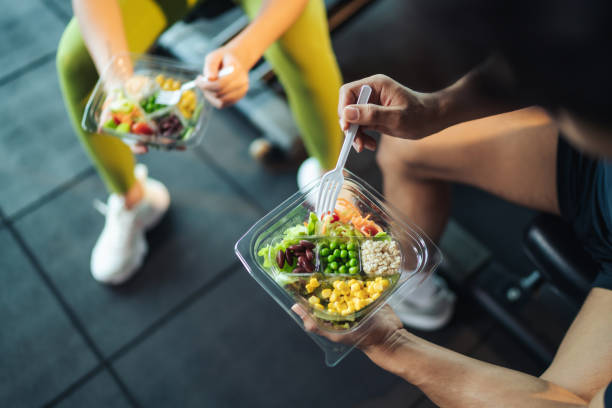
Proper nutrition also accelerates recovery. After intense workouts, pre-prepped meals rich in protein and anti-inflammatory ingredients can help repair muscles, replenish glycogen stores, and reduce soreness. This leads to better performance in subsequent training sessions.
Finally, meal prepping saves time and money. Athletes often juggle tight schedules, and having ready-to-eat meals on hand eliminates the stress of cooking daily. It also reduces the temptation of grabbing fast food or processed snacks, making meal prep for athletes a practical and budget-friendly solution.
Top Tips for Effective Meal Prep for Athletes
Define Your Nutritional Goals
Defining your nutritional goals is the first step toward effective meal prep for athletes. Whether you’re aiming to build muscle, improve endurance, or shed excess weight, your nutrition must align with your training objectives. Clear goals help guide your food choices and portion sizes.
Start by determining your daily caloric needs and macronutrient distribution. For example, strength athletes may need higher protein, while endurance athletes require more carbohydrates. Micronutrients also matter—vitamins and minerals support energy metabolism and recovery, which are essential for peak performance.
Once your goals are set, meal prep for athletes becomes more strategic. You can plan meals that not only meet your nutritional requirements but also fuel your workouts and speed up recovery. Staying consistent with your meal prep helps you avoid nutrient gaps and maintain focus on your performance targets.
Every athlete is different. Whether you’re training for endurance, strength, or agility, your nutritional needs will vary.
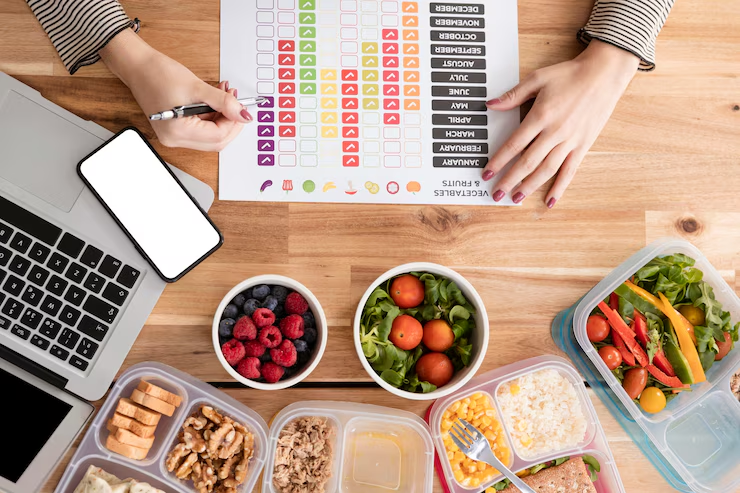
Start by identifying:
Caloric needs (based on activity level)
Macronutrient ratios (proteins, carbs, fats)
Micronutrient needs (vitamins, minerals)
Training schedule (pre/post workout meals)
Tip: Work with a sports dietitian to customize your nutritional plan, especially if you’re preparing for a competition or following a specific training cycle.
Plan Your Week Ahead
Planning your week ahead is key to successful meal prep for athletes. Start by reviewing your training schedule to determine when you’ll need high-energy meals or quick post-workout recovery options. This helps you prepare meals that align with your workout intensity and timing.
Create a simple weekly menu with breakfast, lunch, dinner, and snacks. Focus on variety and balance—rotate proteins, grains, and vegetables to avoid boredom and ensure nutrient diversity. Make a shopping list based on your plan to streamline grocery trips and avoid impulse purchases.
By organizing your week in advance, meal prep for athletes becomes more efficient and less stressful. You’ll save time, stay on track with your goals, and reduce the temptation to grab unhealthy options when you’re busy or tired. A well-planned week supports consistent eating habits and better performance on and off the field.
Successful meal prep begins with solid planning. Pick one day each week (usually Sunday) to:
Map out meals for the next 5–7 days.
Decide how many meals/snacks you’ll need each day.
Write a grocery list based on your recipes.
Batch cook and portion meals for easy grab-and-go access.
Example Weekly Plan:
Breakfast: Oatmeal with berries and almond butter
Snack: Greek yogurt + honey + granola
Lunch: Grilled chicken, brown rice, steamed broccoli
Snack: Protein smoothie
Dinner: Salmon, quinoa, roasted vegetables
Post-workout: Chocolate milk or protein shake
Focus on Macronutrient Balance
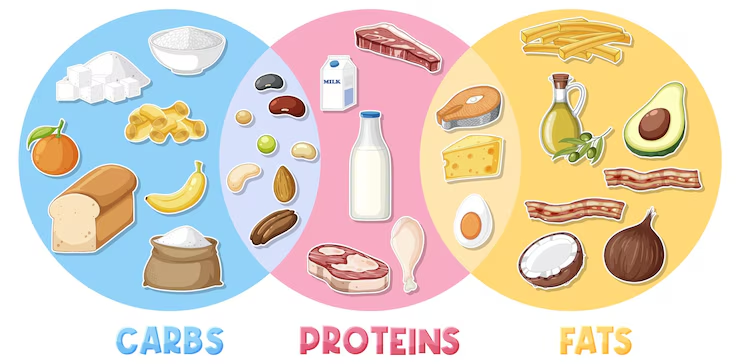
Balancing macronutrients—proteins, carbohydrates, and fats—is essential for effective meal prep for athletes. Each macronutrient plays a vital role: protein supports muscle repair, carbs provide energy, and healthy fats aid in hormone production and recovery.
Customize your meals based on your training goals. For strength training, increase protein intake with sources like chicken, eggs, or legumes. For endurance workouts, prioritize complex carbohydrates such as brown rice or sweet potatoes to sustain energy. Don’t forget healthy fats from nuts, seeds, and avocados for overall wellness.
Including a good mix of all three macronutrients in each meal ensures your body has the fuel it needs to perform and recover. Meal prep for athletes becomes most effective when meals are nutritionally balanced, helping you stay energized, build strength, and avoid fatigue during demanding training sessions.
Athletes should prioritize macronutrient balance in every meal to support energy and recovery.
Protein: Essential for muscle repair and growth. Aim for 1.2 to 2.0 grams per kg of body weight daily.
Sources: Chicken, turkey, lean beef, fish, eggs, tofu, legumes, Greek yogurt
Carbohydrates: Primary fuel source, especially important for endurance athletes.
Sources: Brown rice, quinoa, sweet potatoes, whole grains, fruits, oats
Fats: Support hormone production and long-term energy.
Sources: Avocados, nuts, seeds, olive oil, fatty fish
Tip: A balanced meal should have all three macronutrients. Don’t skip carbs—they’re vital for fueling workouts.
Choose Versatile Ingredients
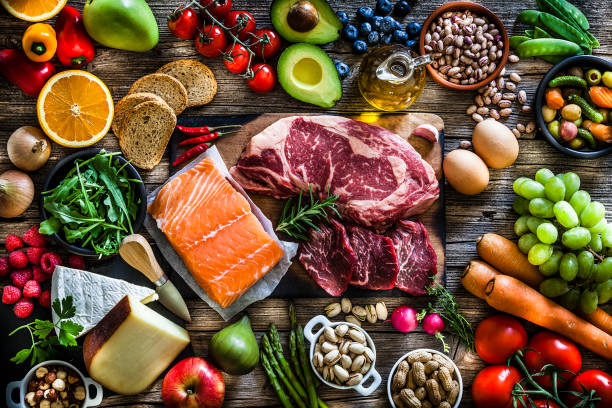
Choosing versatile ingredients simplifies and enhances meal prep for athletes. Staples like chicken, eggs, quinoa, brown rice, sweet potatoes, and leafy greens can be used in multiple recipes, reducing prep time while keeping meals interesting and nutritious.
These ingredients offer flexibility—grilled chicken can top salads, fill wraps, or be paired with veggies. Quinoa works as a side, in salads, or even breakfast bowls. Using a core set of foods makes it easier to batch-cook and mix-and-match meals throughout the week.
Versatile ingredients also help maintain nutritional balance across meals. They ensure that each dish is packed with essential macronutrients and micronutrients needed for energy and recovery. For efficient and sustainable meal prep for athletes, build your menu around flexible, whole-food ingredients that are easy to prepare and adapt to your training demands.
Opt for versatile and nutrient-dense foods that can be used across multiple meals. This not only saves time but reduces waste and cost.
Top versatile ingredients for athletes
Proteins: Chicken breast, eggs, lentils, Greek yogurt
Carbs: Brown rice, oats, sweet potatoes
Vegetables: Broccoli, spinach, bell peppers, carrots
Fats: Avocados, almonds, olive oil
Tip: Roast a large tray of vegetables, grill several portions of chicken, and cook a big batch of brown rice. Mix and match to create different meal combinations throughout the week.
Prepare Snacks and Recovery Meals
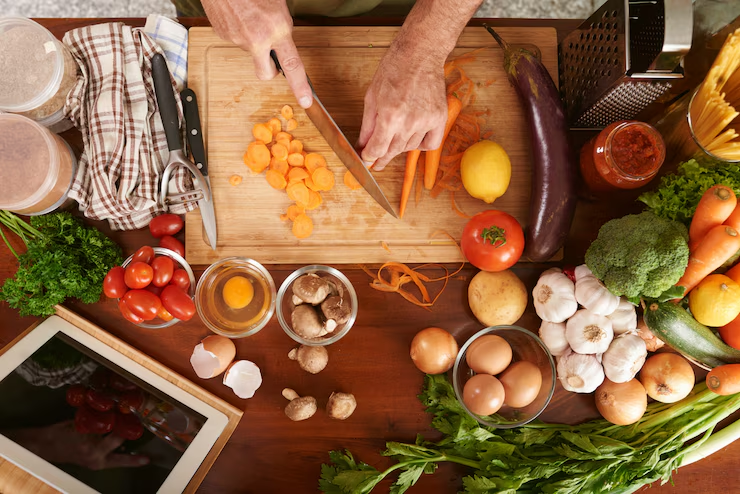
Snacks and recovery meals are just as important as main meals in meal prep for athletes. They provide quick energy before workouts and support muscle repair afterward. Preparing them in advance ensures you’re never caught without fuel when you need it most.
Opt for high-protein snacks like Greek yogurt, protein balls, or hard-boiled eggs, and pair them with carbs such as fruit or whole-grain crackers. For post-workout recovery, meals should include both protein and carbs—like a chicken and rice bowl or a smoothie with protein powder and banana.
Having these options ready to go helps maintain energy levels, reduce muscle soreness, and support consistent performance. Including snacks and recovery meals in your meal prep for athletes routine keeps your body nourished around the clock, making it easier to reach your training goals.
Great snacks for athletes:
Protein bars (low sugar)
Trail mix with nuts and seeds
Cottage cheese with fruit
Hard-boiled eggs
Peanut butter and banana
Hummus and whole-grain crackers
For post-workout recovery, aim to eat within 30–60 minutes of training. Combine fast-digesting carbs with protein to replenish glycogen and repair muscles.
Examples:
Chocolate milk
Protein smoothie with banana
Turkey sandwich on whole-grain bread
Invest in Quality Containers and Tools
Investing in quality containers and kitchen tools is a smart move for efficient meal prep for athletes. Durable, leak-proof containers help keep meals fresh, organized, and easy to grab on the go—essential for athletes with busy schedules.
Choose BPA-free, microwave-safe containers in various sizes to portion meals and snacks properly. Tools like a food scale, sharp knives, slow cookers, and blenders can speed up prep time and ensure consistent results. These investments pay off by making meal prep faster and more enjoyable.
With the right tools, you’ll be more motivated to stick to your routine and less likely to skip meals or rely on takeout. High-quality equipment simplifies the process, supports better organization, and enhances the overall success of your meal prep for athletes, allowing you to stay focused on training and recovery.
The right gear makes meal prepping easier and more effective.
Invest in:
BPA-free containers with compartments
Glass containers for reheating
Coolers and insulated bags for on-the-go
Portion scoops for accuracy
Measuring tools and food scale for consistency
Tip: Label each container with the meal name and date to stay organized and avoid spoilage.
Don’t Forget Hydration and Electrolytes
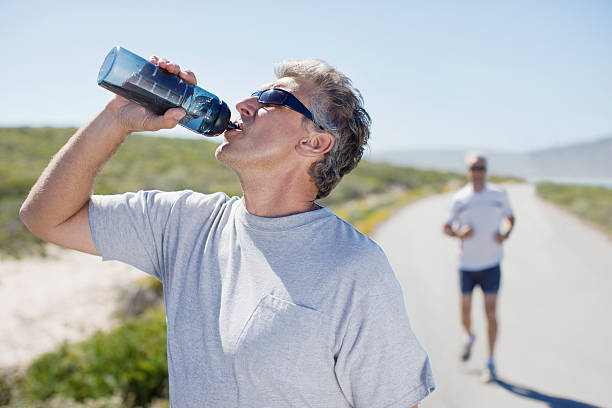
Hydration is a crucial yet often overlooked part of meal prep for athletes. Water supports muscle function, digestion, and temperature regulation, all of which directly impact performance and recovery. Staying hydrated throughout the day is just as important as the food you eat.
In addition to water, athletes lose essential electrolytes—like sodium, potassium, and magnesium—through sweat. Replenishing these is vital, especially during intense training or hot-weather workouts. Include natural electrolyte sources like coconut water, bananas, and leafy greens in your meals.
By planning your hydration along with your food, you create a more complete approach to meal prep for athletes. Prepare infused water, electrolyte drinks, or add hydrating fruits and veggies to your meals. This ensures your body stays balanced, energized, and ready to perform at its peak every day.
Daily Hydration Tips:
Drink half your body weight in ounces of water (or more in hot conditions).
Add electrolyte tabs or sports drinks after intense workouts.
Include hydrating foods like watermelon, cucumbers, oranges, and spinach.
Tip: Pre-fill water bottles each night and prep electrolyte solutions for post-training.
Make It Interesting and Sustainable
Keeping your meals interesting and enjoyable is key to long-term success with meal prep for athletes. Repeating the same dishes week after week can lead to boredom, making it tempting to stray from your nutrition goals. Add variety with different herbs, spices, and cooking methods.
Try rotating your proteins, grains, and vegetables every week. One week, use grilled salmon and quinoa; the next, try turkey with roasted sweet potatoes. Including global flavors or theme-based meals like “Mexican night” or “Mediterranean bowls” can keep things fresh and exciting.
The goal is to make meal prep for athletes not just effective but sustainable. When meals are flavorful and satisfying, you’re more likely to stick with your routine, stay motivated, and meet your performance goals without feeling restricted. A little creativity goes a long way in building healthy, lasting habits.
Try different cuisines (Mexican, Asian, Mediterranean)
Use spices and herbs for variety without extra calories
Rotate protein sources: chicken, fish, beef, plant-based
Batch cook 2–3 recipes to rotate throughout the week
Keep 1–2 meals per week open for dining out or special treats
Sample 1-Day Meal Plan for a High-Performance Athlete
| Meal | Food |
| Breakfast | 3-egg omelet with spinach and feta, whole grain toast, orange juice |
| Snack | Protein smoothie (whey, banana, peanut butter, almond milk) |
| Lunch | Grilled chicken, quinoa, mixed greens, avocado |
| Pre-workout | Oats with honey and berries |
| Post-workout | Chocolate milk or recovery shake |
| Dinner | Baked salmon, roasted sweet potato, steamed broccoli |
| Evening snack | Greek yogurt with chia seeds and sliced almonds |
Conclusion
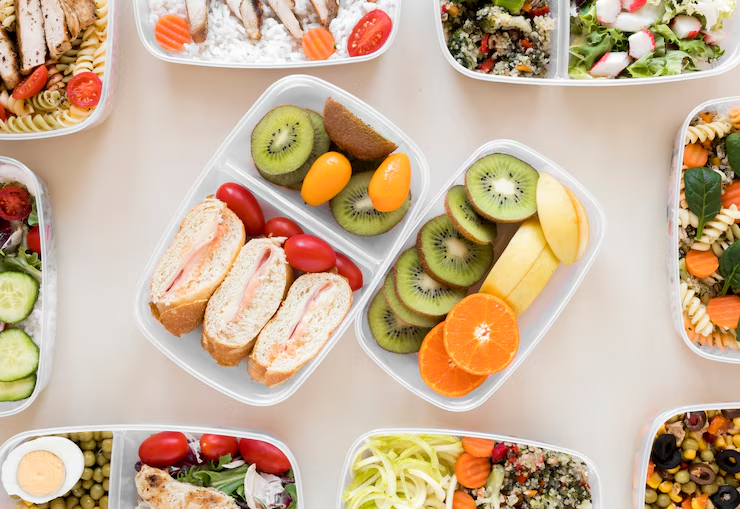
Meal prep for athletes goes beyond saving time—it’s a powerful strategy to boost performance, enhance recovery, and stay ahead of the competition. By preparing meals in advance, athletes can ensure consistent, nutrient-rich fueling that aligns with their training goals.
With thoughtful planning, balanced nutrition, and a touch of creativity, meal prep for athletes becomes both effective and enjoyable. It helps eliminate guesswork, reduces reliance on unhealthy options, and supports better energy levels and focus during workouts and competitions.
Always remember, nutrition is your silent training partner—it supports you behind the scenes and makes a difference when it matters most. By applying these eight simple yet impactful tips into your weekly routine, you’re making a long-term investment in your health, performance, and athletic journey.
FAQs
Q.1 Why is meal prep important for athletes ?
Meal prep helps athletes maintain consistent nutrition by ensuring meals are balanced, ready to eat, and tailored to their training needs. It supports performance, recovery, and overall health.
Q.2 How many meals should an athlete prep each week ?
This depends on the athlete’s schedule, but most prep 5–7 days of meals, including breakfast, lunch, dinner, snacks, and post-workout options.
Q.3 What are the best foods for athletic meal prep ?
Lean proteins, complex carbs, healthy fats, and plenty of fruits and vegetables are ideal. Think chicken, brown rice, sweet potatoes, oats, eggs, and leafy greens.
Q.4 Can meal prep help with muscle recovery ?
Yes. Meals rich in protein and carbs, eaten within 30–60 minutes post-workout, help repair muscles, reduce soreness, and restore energy.
Q.5 How do I keep meal prep interesting ?
Rotate ingredients weekly, use different spices and sauces, and try various cooking methods. You can also plan themed meals to avoid getting bored.


